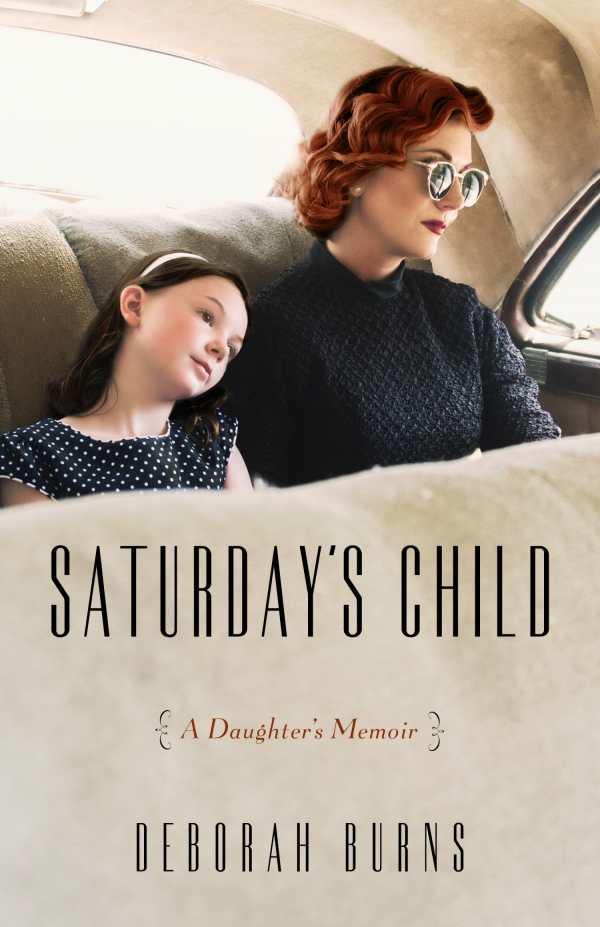Saturday's Child
A Daughter's Memoir
Children of sometimes difficult parents will find this clear-eyed and cathartic memoir to be sympathetic.
More than a memoir, Deborah Burns’s Saturday’s Child is a tribute to her mother Dotty, a powerhouse of a woman whose role in Burns’s life is conveyed in expressive prose.
Burns memorializes Dotty through memories of her childhood and young adulthood, up through Dotty’s death. In these memories and depictions of her mother’s life before children, Burns shares her perception of her mother as a glamorous, capable, highly respected socialite who could just as easily play poker with the men at the country club as she could gossip with the women at the pool. Totally rejecting the concept of domesticity, she would go out with her friends on weeknights—without asking permission from her doting husband (it was the 1950s)—but would devote her attention every Saturday to her young daughter.
Burns idolized her mother as a child, and she continued to respect her, as well as to learn more about their similarities and stark differences, as an adult, in spite of the choices Dotty made and the secrets she kept. Burns’s own journey through motherhood and caring for her mother during cancer culminate in a striking insight, told to her by a psychic astrologer: “What you thought was intense love for her was actually your own desperate need to be loved by her.”
Important scenes are captured in thorough, enchanting detail. Other details—such as that Burns began writing the book when she was the same age that her mother was when she died—draw clear-minded connections.
The book’s language is eloquent, and narrative techniques including cliffhangers and suspense help the story to unfurl. Dotty is a compelling character. Pertinent descriptions articulate people’s natures in few, precise words, like an observation that a family member born at the turn of the century “was clinging to an old world.”
The pacing is often slow, but scenes are compelling enough to sustain attention. Some sections are internally confusing, though each chapter focuses on a distinct theme or time in Burns’s life, and the book mostly moves chronologically. The majority of the book is centered on Burns’s childhood, with a few chapters glossing over years in her adulthood. The conclusion of the book is enlightening and offers peace.
Saturday’s Child is a memoir that recalls a difficult mother-daughter relationship; its cathartic tone is sympathetic.
Reviewed by
Aimee Jodoin
Disclosure: This article is not an endorsement, but a review. The publisher of this book provided free copies of the book and paid a small fee to have their book reviewed by a professional reviewer. Foreword Reviews and Clarion Reviews make no guarantee that the publisher will receive a positive review. Foreword Magazine, Inc. is disclosing this in accordance with the Federal Trade Commission’s 16 CFR, Part 255.

